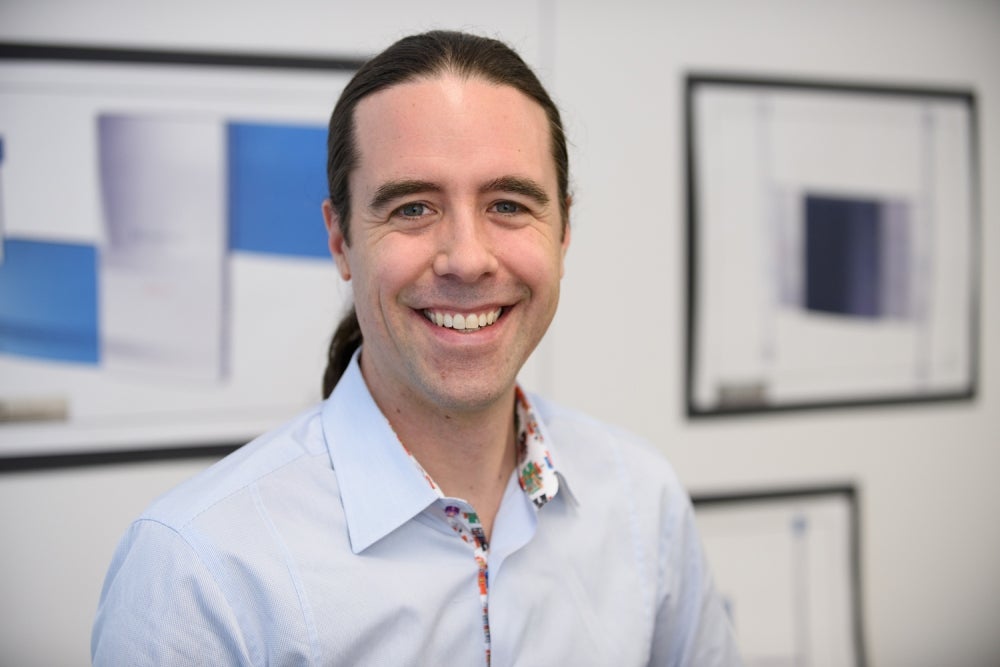
Shining a Light on Shadow Learning
The use of robots in healthcare continues to increase rapidly around the world. During the ongoing COVID-19 pandemic, hospitals have started to use robots to interview patients, monitor their vital signs, disinfect rooms, plus deliver food, fresh linens and personal protective equipment. Robots continue to facilitate a significant number of surgeries, ranging from colorectal and gastric procedures to others to repair hernias and address pancreatic issues. According to iData Research, more than 693,000 robot-assisted surgeries were performed in the United States in 2017, a 73% increase since 2012.
What does all of this robotic activity mean for surgical trainees, also known as residents? Matt Beane, an assistant professor in UC Santa Barbara’s Technology Management Program, spent thousands of hours over more than two years studying robotic surgery to understand how surgeons were adapting. He discussed his research in the paper, “Shadow Learning: Building Robotic Surgical Skill When Approved Means Fail,” published by Administrative Science Quarterly.
“Residents get ten to twenty times less practice,” said Beane, who has contributed articles to such outlets as Wired, Forbes, RoboHub, and Tech Crunch. “They are finishing their residencies licensed to use robots in the operating room, but many are graduating without crucial surgical skills because they did not receive enough practice or mentorship.”
Since appearing online, Beane’s article has been viewed and downloaded nearly 50,000 times, generating enough online activity to rank in the top five-percent of all research articles monitored by Altmetric, a data science company that tracks where published research is mentioned online. The Organizational Communication and Information Systems (OCIS) Division of the Academy of Management recognized Beane for his influential work, honoring him with the Best Published Paper Award during its 2020 summer annual meeting. The OCIS studies the behavioral, economic and social aspects of communication and information systems within and among organizations or institutions.
“This is a huge professional honor and a significant life moment for me. The OCIS group is perhaps the most pre-eminent group of scholars focused on the implications of advancing technology for organizations,” said Beane, who previously discussed his findings in a TED talk. “Since I began my doctoral studies, it was clear that many of the papers and scholars I valued the most came out of this community. I was glad even to be able to join it, so I was humbled, grateful and delighted to be selected by a jury of my OCIS peers for this honor.”
As part of his research, Beane observed hundreds of robotic-assisted and traditional procedures at numerous hospitals and interviewed surgeons and surgical trainees, or residents, at more than a dozen other facilities. He focused on how residents learned to use the robotic surgical system, which features a four-armed robot that holds stick-like surgical instruments and is controlled by a surgeon sitting at a console several feet away from the patient. He says there is a downside to introducing machines and artificial technology into surgery: it may result in more unqualified surgeons.
“In traditional surgery, surgical trainees were literally required for the job because the open procedure required four hands and two people most of the time,” said Beane. “The robotic surgical system allowed an expert to operate alone — the trainee was optional. Residents either held a laparoscopic tool to remove smoke and fluids from the patient, or watched the surgical action from a second trainee console.”
In either case, surgeons did not need residents to help, so they received significantly less practice operating than during traditional procedures. The practice they did get was of lower quality because surgeons “helicopter taught” — giving frequent and very public feedback to residents at the console and periodically retaking control of the robot from them.
“Think of how you learned how to do what you do at work. Did you learn it from a book, a class, online? Most of the time, self-respect and power in the world come from skills we learned on the job,” said Beane, who joined the UCSB faculty in July 2018. “That system of learning — which we all take for granted — is under a new kind of threat from the way we’re handling new technologies. It doesn’t have to be that way.”
Beane found that residents who learned the required skills for robotic surgery succeeded because of three norm-bending practices he calls “shadow learning,” because residents engaged in the activities outside of the spotlight. Some of these residents focused on mastering robotic surgery during medical school at the expense of more general medical training. Others practiced extensively on simulators and watched surgeries on YouTube, while many learned by performing robotic surgical work with little expert supervision.
“They may have watched surgery happen in person or on YouTube, but watching it doesn’t make you a surgeon, similar to how watching a movie doesn’t make you an actor,” explained Beane.
Beane believes that shadow learners’ tactics point to a kind of implied playbook for how technologies, job, and organizations can be redesigned to keep apprentices in the loop without sacrificing the gains that the new technology makes possible. He says that artificial intelligence can be part of the solution by teaching trainees when they struggle, and instructing mentors how and when to assist students. Recently, Beane launched a project to build a training system to help with the learning problems his research uncovered in robotic surgery.
He also has expanded the scope of his research, launching a nationwide, multi-firm field research project on the implementation of AI-enabled robots in fulfillment warehouses. Inspired by his surgery project, Beane says his focus centers on the conditions under which front-line workers and their organizations adapt particularly well to these cutting-edge systems.



